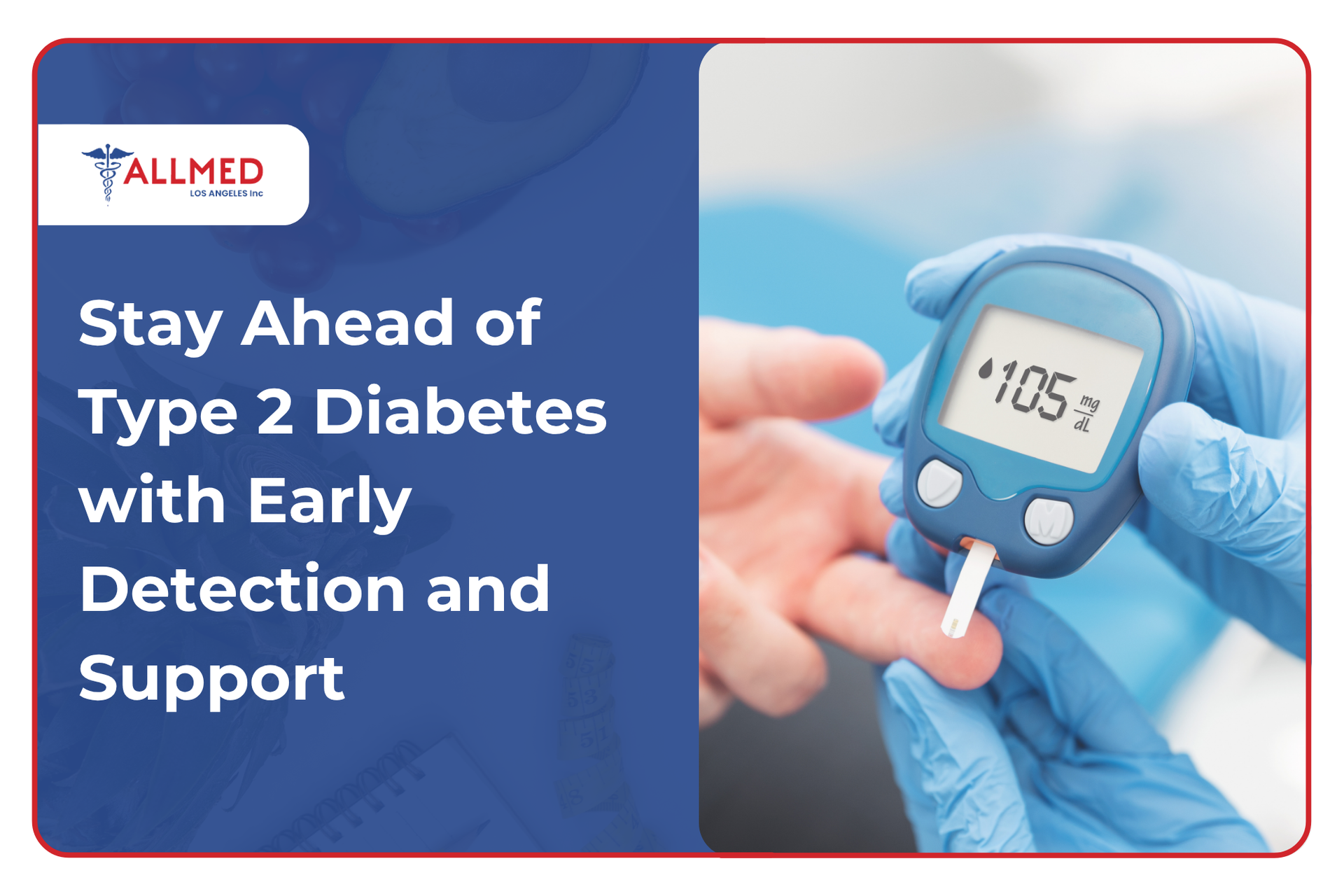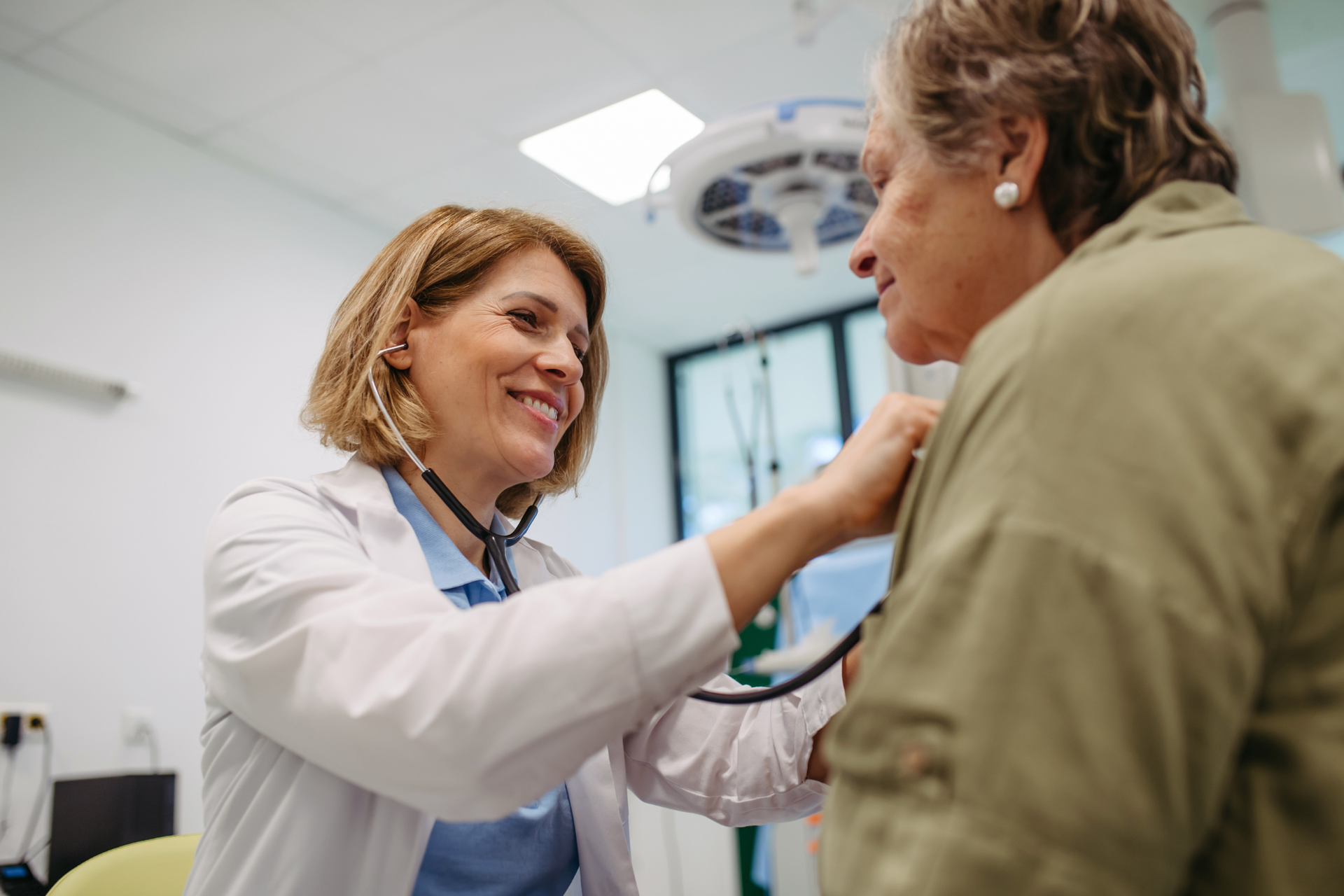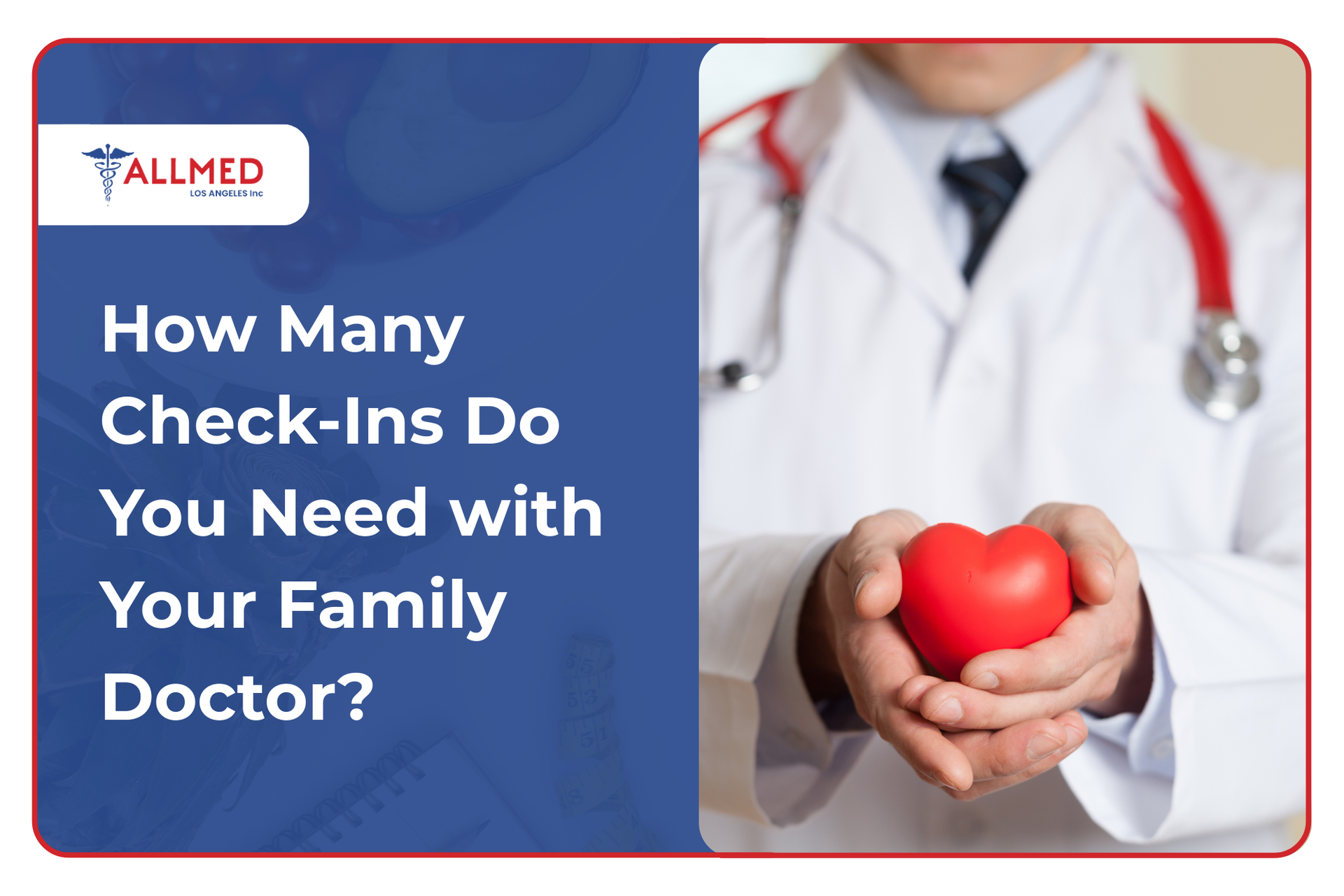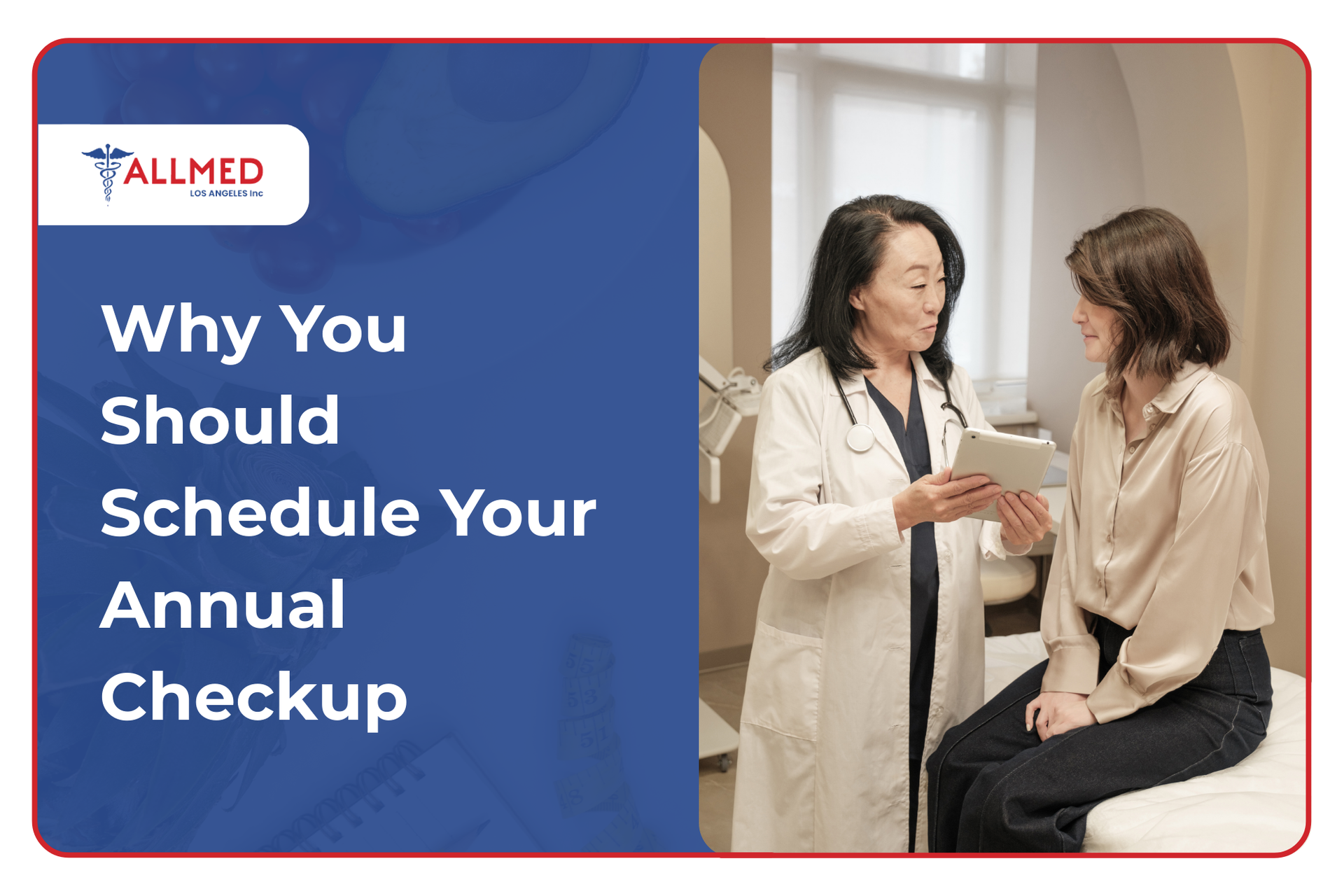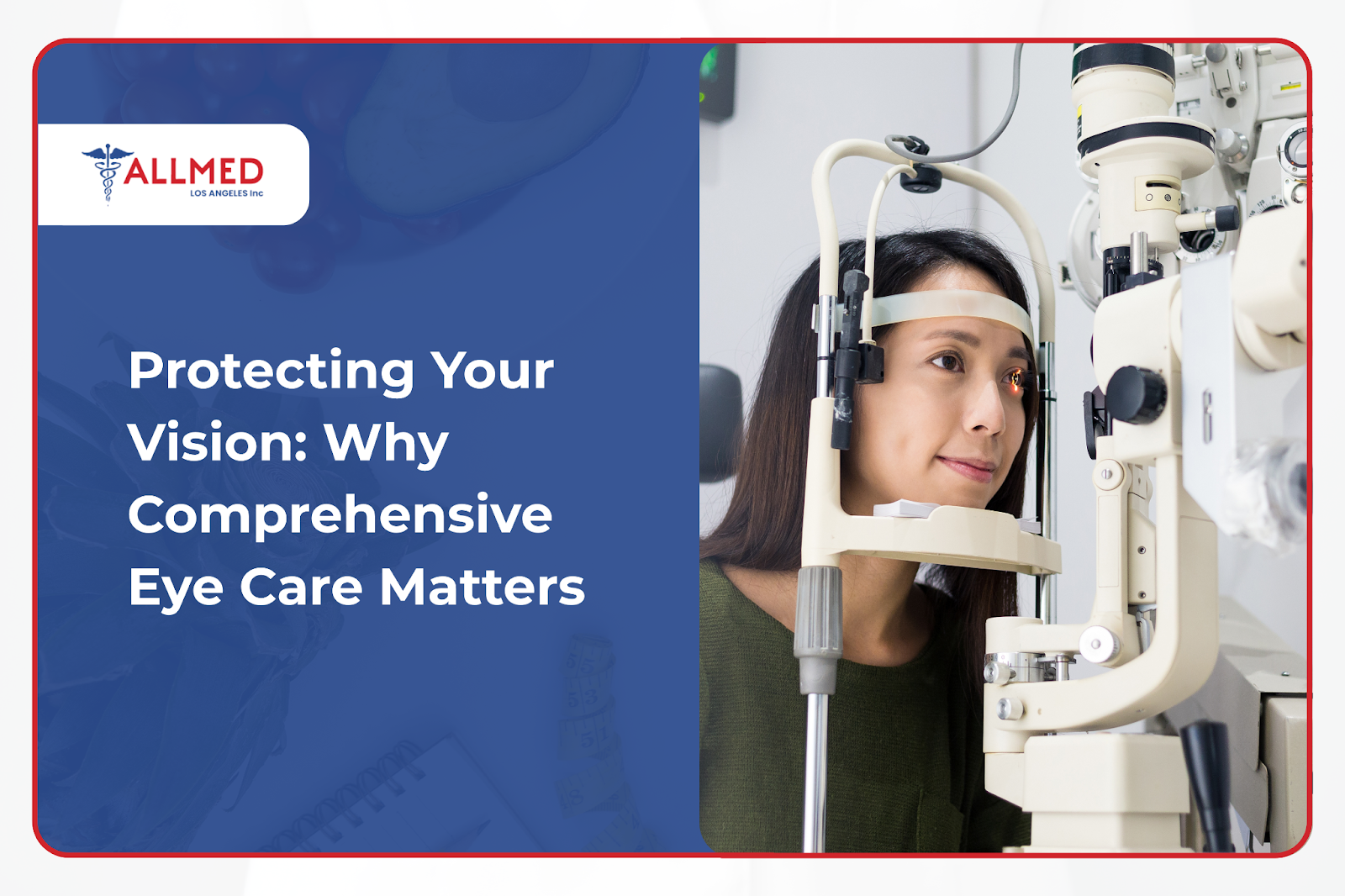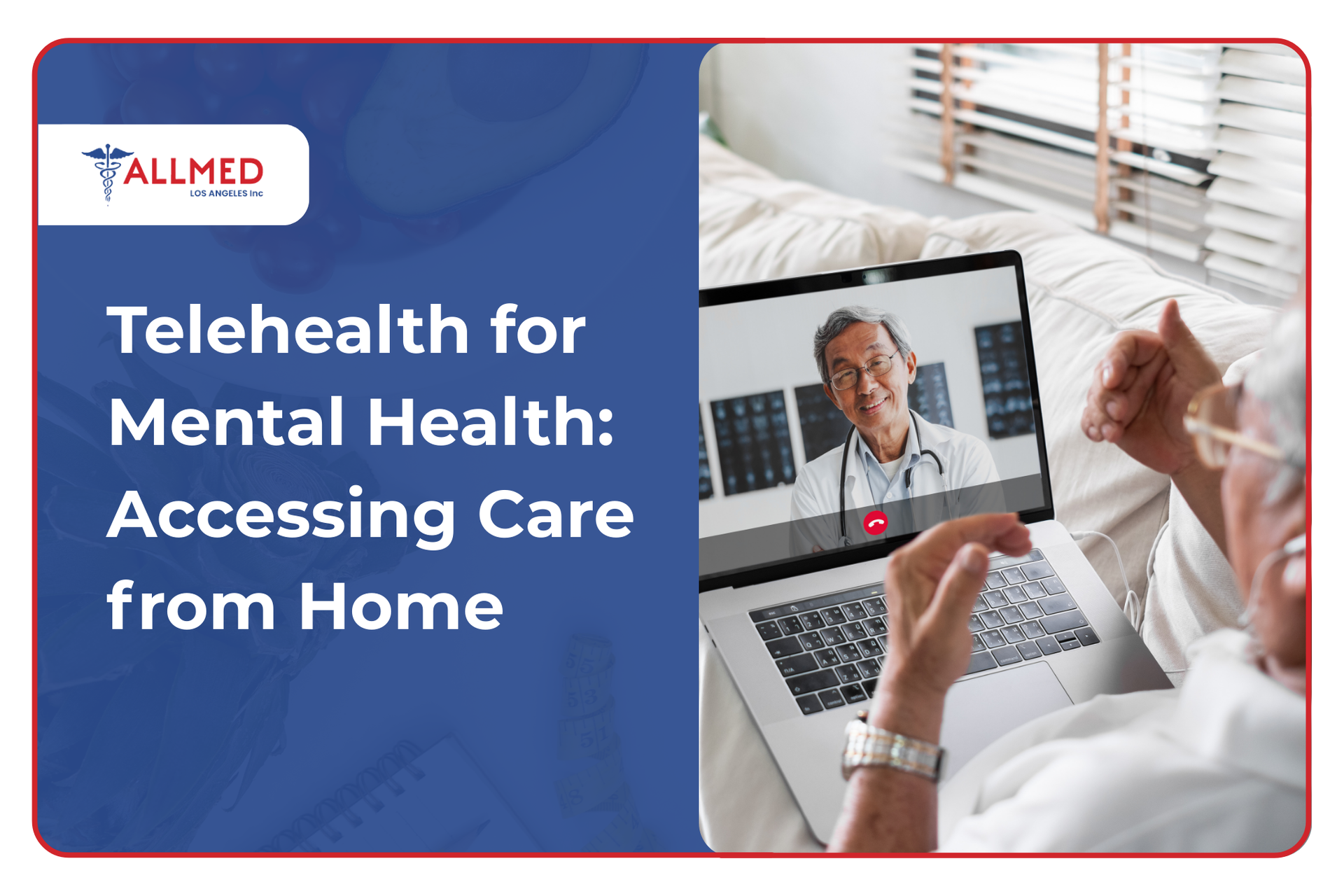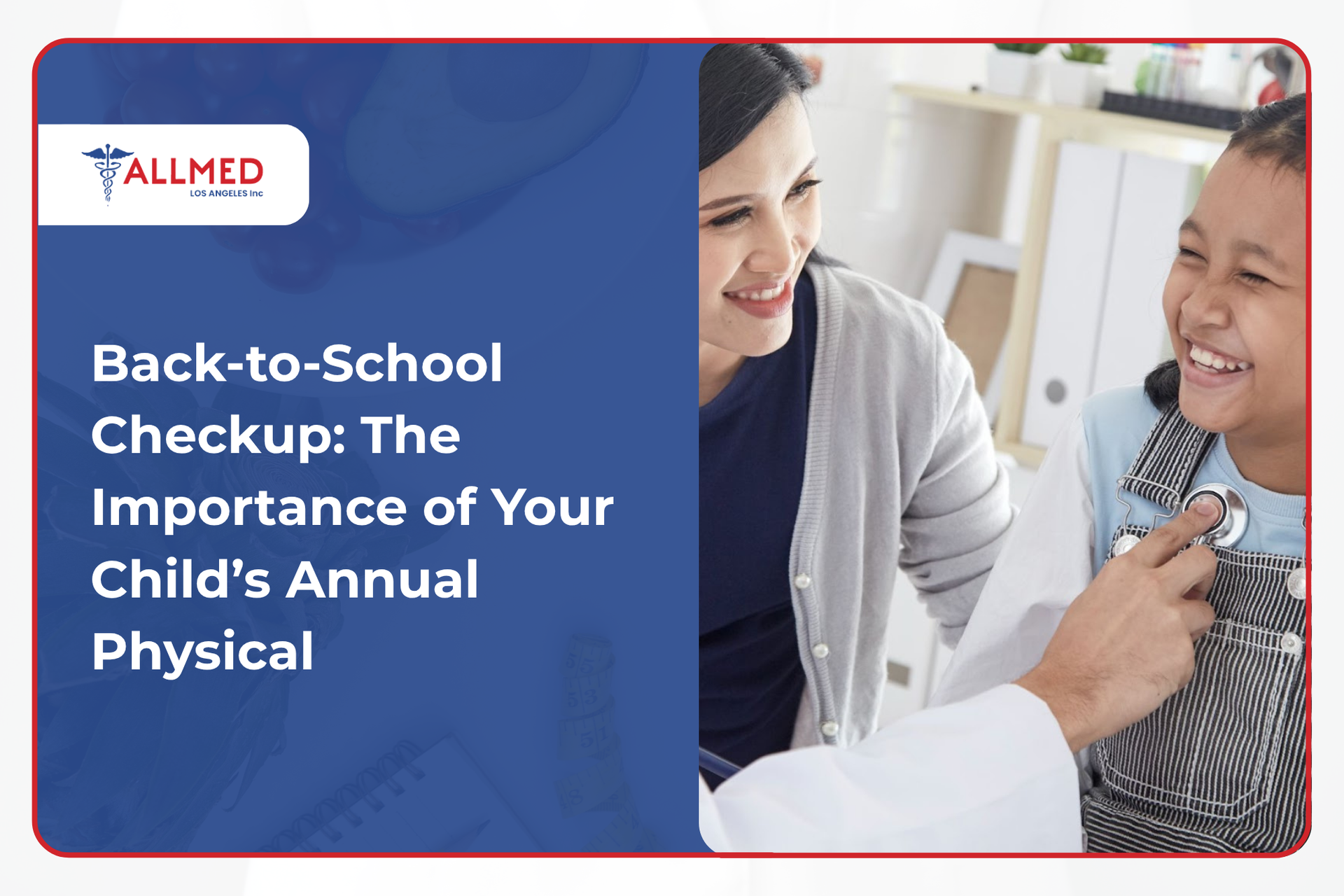In California alone, diabetes affects about 3.6 million people (about 11.7% of adults). And that’s just the diagnosed cases. Many more may have the condition without even knowing it.
But don’t panic, Angelenos. Type 2 diabetes can often be prevented. When caught early, it’s highly manageable. Your first step? Awareness.
Here at
Allmed LA, we make it our mission to keep our community informed and empowered to take control of their health. We’re here to help you understand Type 2 diabetes—what it is, how to spot it early, and what steps you can take to protect yourself and your loved ones.
If you want to be even sure and take a proactive role in your health, schedule a diabetes screening with our care team today. We’ll be happy to guide you on your journey toward a healthier, happier you.
Your Healthier Future Starts with Us
What Is Type 2 Diabetes?
Your body runs on glucose (sugar) from the food you eat. Insulin, a hormone made by your pancreas, acts like a key that unlocks your cells so glucose can get inside and give you energy.
With Type 2 Diabetes, one of two things happens:
- Your body doesn’t make enough insulin, or
- Your cells stop responding to insulin the way they should (often called insulin resistance)
When sugar builds up in your blood instead of being used for energy, it can lead to serious health problems that affect your heart, kidneys, eyes, and nerves.
If you want to be sure about whether you’re at risk or not, it’s always best to
schedule a diabetes screening or a blood sugar test at your nearby clinic or at Allmed LA.
What’s the Difference Between Type 1 and Type 2 Diabetes?
Type 1 is an autoimmune condition, usually diagnosed in childhood, where the body stops making insulin altogether. It’s why they need insulin injections to survive.
Type 2 Diabetes doesn’t need all that. Your body still makes insulin, it just doesn’t work as well as it should. This is the common form, making up about
95% all diabetes cases.
Who Is at Risk?
Anyone can develop Type 2 diabetes, but some are at a higher risk than others. While certain risk factors of Type 2 diabetes can be changed, knowing where you stand helps you take action early.
Lifestyle Factors You Can Change
These are called modifiable risk factors, meaning you can do something about them:
- Physical inactivity: Not moving enough can make it a bit harder for your body to use insulin properly.
- Poor diet: Eating foods high in sugar, refined carbs, and unhealthy fats increases your risk.
- Being overweight or obese: Extra body weight (especially around the waist) can contribute to insulin resistance.
- High blood pressure or cholesterol: These conditions often go hand in hand with diabetes and increase the risk further.
Factors You Can’t Change
These are the non-modifiable risks, and while you can’t control them, being aware is key:
- Family history: Having a family member with Type 2 diabetes raises your chances.
- Age: Risk increases after 40 years old, though it’s appearing more often in younger adults, too.
- Ethnicity: People of Hispanic, African American, Asian American, or Native American descent are more likely to develop the condition.
Early Signs to Watch Out For
Type 2 diabetes symptoms aren’t very distinct. Instead, it’s subtle, often easy to dismiss as stress, aging, or just being tired.
Look out for these warning signs of diabetes:
- Increased Thirst and Urination
Finding yourself constantly reaching for water? Making multiple trips to the bathroom, especially at night? High blood sugar pulls fluid from your tissues, leaving you thirsty and needing to urinate more frequently.
- Unexplained Fatigue
If you’re getting enough sleep but still feel exhausted, it could be a sign. When glucose can’t get into your cells, your body is literally starving for energy, even though your blood is full of sugar.
- Blurred Vision
The lens of your eyes swells when you have high blood sugar, changing your ability to focus. If your vision seems off and you haven't changed your glasses recently, it's worth checking.
- Slow-Healing Wounds
Notice cuts or bruises taking longer to heal than they used to? High blood sugar affects circulation and your immune system's ability to repair tissue.
- Tingling or Numbness
Experiencing pins and needles in your hands or feet? This could be early nerve damage from high blood sugar, a condition called neuropathy.
Prevent Type 2 Diabetes Naturally
You don’t need an extreme diet or a gym membership to lower your risk. Small, consistent changes in your lifestyle and daily habits can help in maintaining balanced blood sugar levels and promoting overall body health.
Eat with Your Health in Mind
Choose foods that help your body use insulin more effectively.
- Cut back on sweet drinks and processed snacks because they can cause sudden spikes in blood sugar.
- Try out the
seven recognized meal patterns from diabetes.org to keep your blood sugar levels lower.
Move a Little More Each Day
Physical activity regulates your body’s blood sugar naturally.
- Aim for at least 30 minutes of movement most days (a walk around your block counts!)
- If you sit a lot for work, try standing or stretching for a few minutes every hour.
Schedule Routine Changes
Even if you feel fine, regular checkups are one of the best tools for prevention.
- Ask your healthcare provider about blood sugar screenings, especially if you have risk factors for developing diabetes.
- Keep track of your blood pressure and cholesterol. They’re all connected to your overall health.
Early Intervention and Support: Start with Allmed LA
Diabetes prevention is powerful, but so is taking action the moment you need it. If you’re concerned about your risk, noticing symptoms, or have already been diagnosed with prediabetes or Type 2 diabetes, this is your sign to get yourself checked now.
The earlier you do, the more options you have.
A diabetes diagnosis isn’t the end, it’s the start of a new, healthier chapter. With the right care plan and support system, many people continue doing what they love every day.
Here at
Allmed LA, we would love to bring that to reality for you. With our expertise and compassionate team, we’ll make sure to provide you with the care and attention you deserve with our:
- Comprehensive primary care to monitor and manage your overall health.
- Blood sugar tests and regular screenings to catch diabetes and other conditions early.
- Nutrition counseling and diabetes education programs to help you make sustainable life changes.
- Access to specialty services and diabetes management tips when you need extra support.
Every person, regardless of income or background, deserves access to quality care, clear guidance, and genuine compassion.
If you’re feeling anxious or overwhelmed about diabetes, know this: You’re not starting from a place of failure. You’re starting from a place of courage. Seeking care, asking questions, and taking steps toward better health—that’s strength. We’ll be right there with you, every step of the way.
Get Tested. Get Answers. Get Started.




